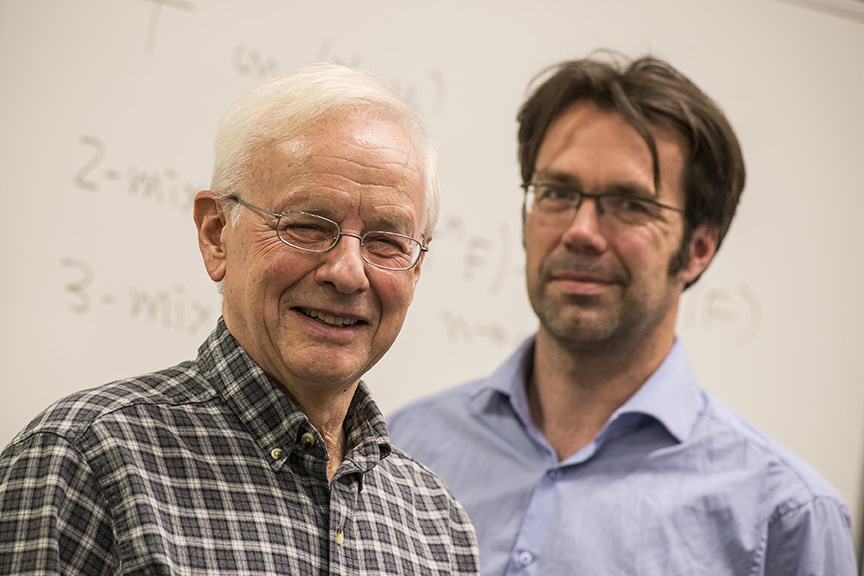July 9, 2014
UOW maths conference encourages fundamental interactions
Leading Australian and international mathematicians met at UOW this week for a workshop that considered the interactions between two fields of pure mathematics - operator algebras and dynamical systems.
The workshop, hosted by UOW’s School of Mathematics and Applied Statistics, brought together experts from UOW, Denmark, Norway and New Zealand in the field of operator algebras which is a UOW teaching and research strength.
Leading dynamisists from France and the United States, as well as top Australian researchers from the University of Sydney, the University of New South Wales and the University of Newcastle, also attended the workshop.
The workshop hosted two key lectures - one by Professor Søren Eilers (University of Copenhagen) and one by Professor Douglas Lind (University of Washington), whose research and text is now essential reading for dynamisists.
“Whenever I go to a conference I learn new things,” Professor Lind said. “The amazing thing is that I get a chance to hear from people I may have never met previously, and hearing what they have to say in their subject area may have an impact on fundamental questions I am dealing with.”
Operator algebras were originally developed as a mathematical framework for the study of quantum mechanics. Future applications may include use in the field of spin-tronics, a form of electronics that not only uses how electrons move but also their spin. Spin-tronics are of interest to researchers for use in information technology devices that could significantly boost capacity and lower power use of memory and storage devices.
Dynamical systems provide a mathematical framework for analysing time-dependent physical systems. The discipline has applications in wide-ranging areas such as the coding of memory in computers and the movements of asteroids through space.
Workshop co-organiser Dr Michael Whittaker said the lecture series provided an overview of the two fields and explained current trends and noteworthy problems in both areas.
“We’re introducing established researchers working solely in one of the fields to the complementary field; and providing young researchers an introduction to high-profile research areas,” he said.
“Naturally, the workshop also featured specialist talks where researchers presented cutting edge results. Ultimately, the workshop aimed to provide an environment that will foster exciting new research collaborations within Australia and internationally.”
